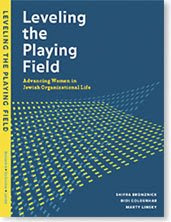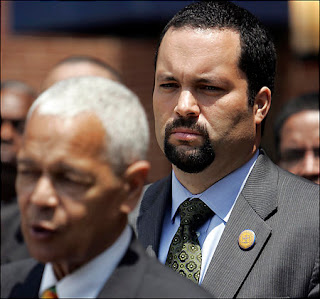
Occasionally I will get a new philanthropy book or report from a publisher to review. Before the craziness of the Council on Foundations conference I received "Leveling the Playing Field: Advancing Women in Jewish Organizational Life" by Shifra Bronznick, Didi Goldenhar, and Marty Linsky. This is a "how-to" book for those that want to champion gender equity in the workplace. The book covers why equitable environments are key to organizational success and long-term health of the Jewish community. This argument is much like the continued call for diversity in the foundation field to strengthen not just organizations but the communities that foundations are committed to enriching.
The authors have an interesting point that if you are committed to increasing equity in organizations the you must expand your own advancement opportunities because your "ability to support gender equity depends on where you sit in the organization." One way to do this is ask for what you want and need within your organization. Don't expect your talents to be noticed and recognized. "Women professionals benefit when they state their aspirations clearly and enlist their colleagues and supervisors in helping them meet their goals." If you want to be promoted to vice president in your organization within five years, tell your organizational leadership that that's what you aspire to. Being honest about your goals decreases the chance that you will be mistakenly overlooked when that position comes open. It will also give you time to prove your skills in the context of that aspirational position. People will start to look at you as a possible candidate, so make sure you are acting like a candidate. More on branding yourself for future positions can be found in my professional development guide on branding yourself for success.
I liked that this book had practical tools that are useful for any type of organization that is working to increase diverse perspectives. The authors have also developed a great conversation kit that helps you facilitate your own discussion about equity. The toolkit and book are available at www.advancingwomen.org
